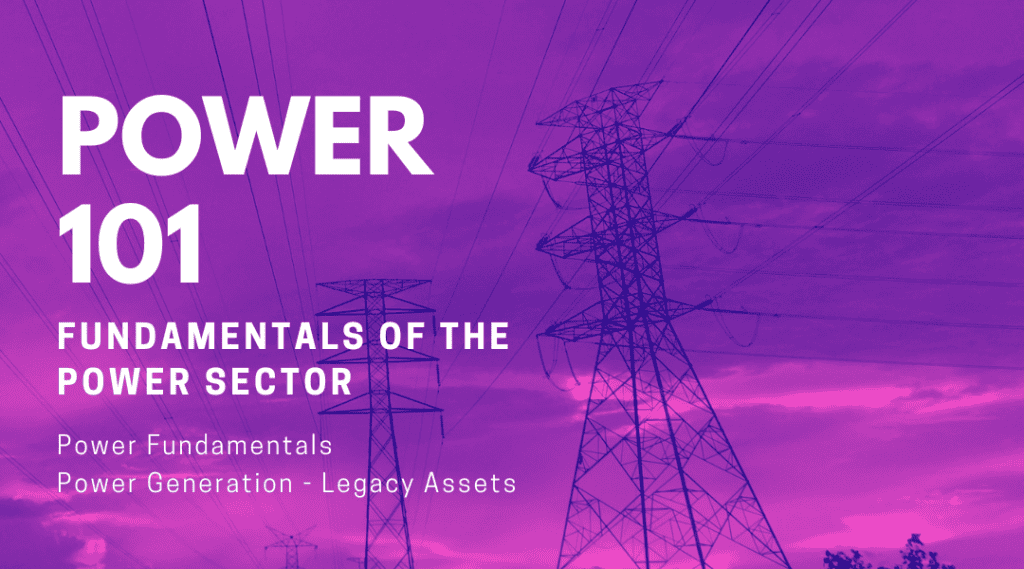What is a watt?
A watt is a unit of power, named after James Watt, the inventor of the steam engine.
One watt is defined as the amount of power needed to do one joule of work per second. In other words, it measures the rate at which energy is transferred or converted from one form to another.
It is commonly used to measure the power consumption of electronic devices and the output of power generating systems such as wind turbines and solar panels.

Learn more with Power 101 today!
Power 101 gets your teams and new hires up to speed on the power industry fast.
Created with input from our corporate partners, Power 101 is focused education on key power industry topics.
What is a watt hour?
A watt-hour (Wh) is a unit of energy that measures the amount of energy used by an appliance or device over a period of time. It is the product of power in watts and time in hours.
For example, if a 100-watt light bulb is turned on for 10 hours, it will consume 1,000 watt-hours (100 watts x 10 hours = 1,000 watt-hours) of energy.
Watt-hours are commonly used to measure the energy consumption of household appliances, as well as the capacity of batteries and the output of solar panels.
They are also used by utility companies to measure the amount of energy used by their customers and to calculate their bills.
What is a kilowatt?
A kilowatt (kW) is a unit of power equal to 1,000 watts.
It is commonly used to express the power output of electric power generators, as well as the power consumption of electric motors, heaters, and other devices.
For example, a typical household electric oven might have a power rating of 3.5 kW, meaning that it consumes 3.5 kilowatts of power when operating at maximum capacity.
Similarly, a typical home solar panel might have a power output of 5 kW, meaning that it can generate up to 5 kilowatts of electricity under optimal conditions.
Kilowatts are often used in conjunction with kilowatt-hours (kWh) to express the energy consumption or production of a device or system over a period of time.
What is a kilowatt hour?
A kilowatt-hour (kWh) is a unit of energy that measures the amount of electrical energy consumed or produced over a period of time.
It is equivalent to the energy consumed by a device with a power rating of 1,000 watts (1 kilowatt) operating for one hour.
For example, if a 100-watt light bulb is turned on for 10 hours, it will consume 1 kilowatt-hour (100 watts x 10 hours / 1000 = 1 kWh) of energy.
Similarly, if a home solar panel generates 5 kilowatts of power for 3 hours, it will produce 15 kilowatt-hours (5 kW x 3 hours = 15 kWh) of energy.
Kilowatt-hours are commonly used to measure the energy consumption or production of household appliances, electric vehicles, and renewable energy systems such as solar panels and wind turbines.
They are also used by utility companies to bill their customers for the amount of energy they consume.
What is a megawatt?
A megawatt (MW) is a unit of power equal to one million watts or 1,000 kilowatts.
It is commonly used to express the power output of large-scale power plants, such as nuclear, coal, gas, and hydroelectric power plants.
For example, a typical nuclear power plant might have a power output of 1,000 MW, meaning that it can generate up to 1,000 megawatts of electricity under normal operating conditions.
Similarly, a large wind turbine might have a power output of 2 MW, meaning that it can generate up to 2 megawatts of electricity under optimal conditions.
Megawatts are often used in conjunction with megawatt-hours (MWh) to express the energy output or consumption of a power plant or energy system over a period of time.
What is a gigawatt?
A gigawatt (GW) is a unit of power equal to one billion watts or 1,000 megawatts.
It is a very large unit of power, typically used to describe the output of very large power plants or energy systems.
For example, the total installed capacity of all wind turbines in the United States is currently over 120 GW, meaning that they can generate up to 120 gigawatts of electricity when operating at full capacity.
Similarly, the world’s largest solar power plant, the Bhadla Solar Park in India, has a peak power output of 2.25 GW.
Gigawatts are often used to describe the power output of large-scale energy systems, such as nuclear power plants, coal-fired power plants, and hydroelectric dams.
They are also used to express the power requirements of very large industrial processes and transportation systems.